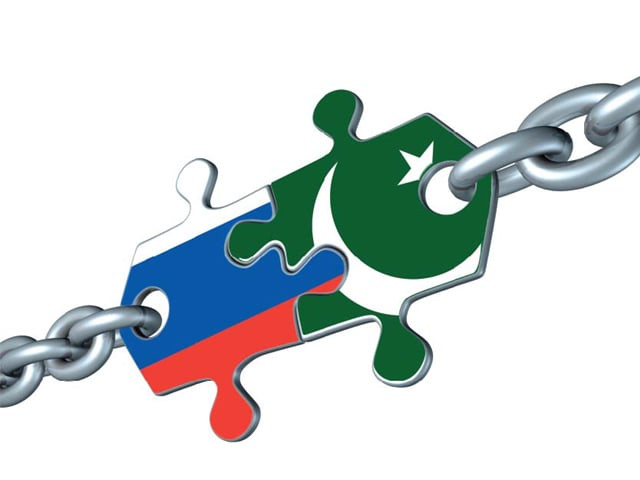Diversifying an isolationist policy
Putin most likely postponed his visit because of mismatch of thinking with GHQ, which runs Pakistan’s foreign policy.

Russia, it seems, is ready to re-enter Pakistan after decades of hostile bilateral relations. Pakistan had played a decisive role in the break-up of the Soviet Union, which ended the Cold War, by siding with the US and its allies. After Pakistan’s embrace of jihad against India through non-state actors — who were also interested in penetrating Central Asia and China — the relationship with Moscow was hardly set to improve.
Two factors have brought about a change. Pakistan’s strategic reductionism based on hatred of the US and a joint Russia-China strategic move in the region against Islamic extremism and a non-conflictual challenge to the US presence in Asia. China and Russia looked to the ‘troubled’ Afghanistan-Pakistan region by inviting Pakistan to the Shanghai Cooperation Organisation (SCO) summit in 2005. The SCO opposes Islamic extremism in the region, which threatens Russia in Chechnya and Dagestan and the Central Asian Republics.
Pakistan has the need — and the right — to diversify its Manichean approach to foreign affairs and develop more cordial relations with the powers closer to its borders such as India, Iran, China and Russia. With all these countries it has made progress and President Putin could have been persuaded to visit because of this Pakistani divorce from black and white military thinking. China and Russia do not view the region through the Pakistani goggles of penetration and dominance but economic opportunity, while cooperating with the US on global terrorism, which radiates in no small measure from Pakistan.
President Putin most likely postponed his visit because of this mismatch of thinking between Moscow and the GHQ, which runs Pakistan’s foreign policy. He probably wants to see some progress in economic cooperation on the ground before he can put the stamp of his authority on this new relationship. His country is dependent on the European Union consuming the gas that Russia supplies through a great intercontinental pipeline, also carrying Central Asian gas. His caution may be shared by China whose prosperity is dependent on the US economy. Chinese leaders have warned Pakistan ‘not to break with the US and to avoid taking hardline positions regarding the US and Nato in Afghanistan’.
Russia, China and India are somewhat opposed to the US policy towards Iran but without hostility. Russia opposes the Turkmen-Afghanistan-Pakistan-India gas pipeline by aiding Pakistan to complete the Iranian gas pipeline, which is hindered because of American sanctions.
Pakistan’s inability to protect its economic partners will soon be at issue. Pakistan swears by Chinese friendship but the fact remains that many Chinese have been killed in Balochistan, Khyber-Pakhtunkhwa and in the tribal areas. When the Lal Masjid got after Chinese citizens living in Islamabad, and China complained officially, the nation sided with the Lal Masjid, not with China. When Gazprom starts operating in Balochistan and Sindh, there is the danger of its personnel being targeted by terrorism. The interior minister swearing that Pakistan is crawling with foreign intelligence agencies killing its friends will convince no one in Moscow.
Syed Saleem Shahzad wrote in Asia Times Online (March 31, 2010): “Monday’s twin suicide attacks by female bombers in the Moscow metro system in which at least 38 people were killed and 64 injured were most likely planned and executed by people trained in Pakistan’s tribal areas.” And Russia knows how Saleem Shahzad was finally killed.
Published in The Express Tribune, October 3rd, 2012.














COMMENTS
Comments are moderated and generally will be posted if they are on-topic and not abusive.
For more information, please see our Comments FAQ